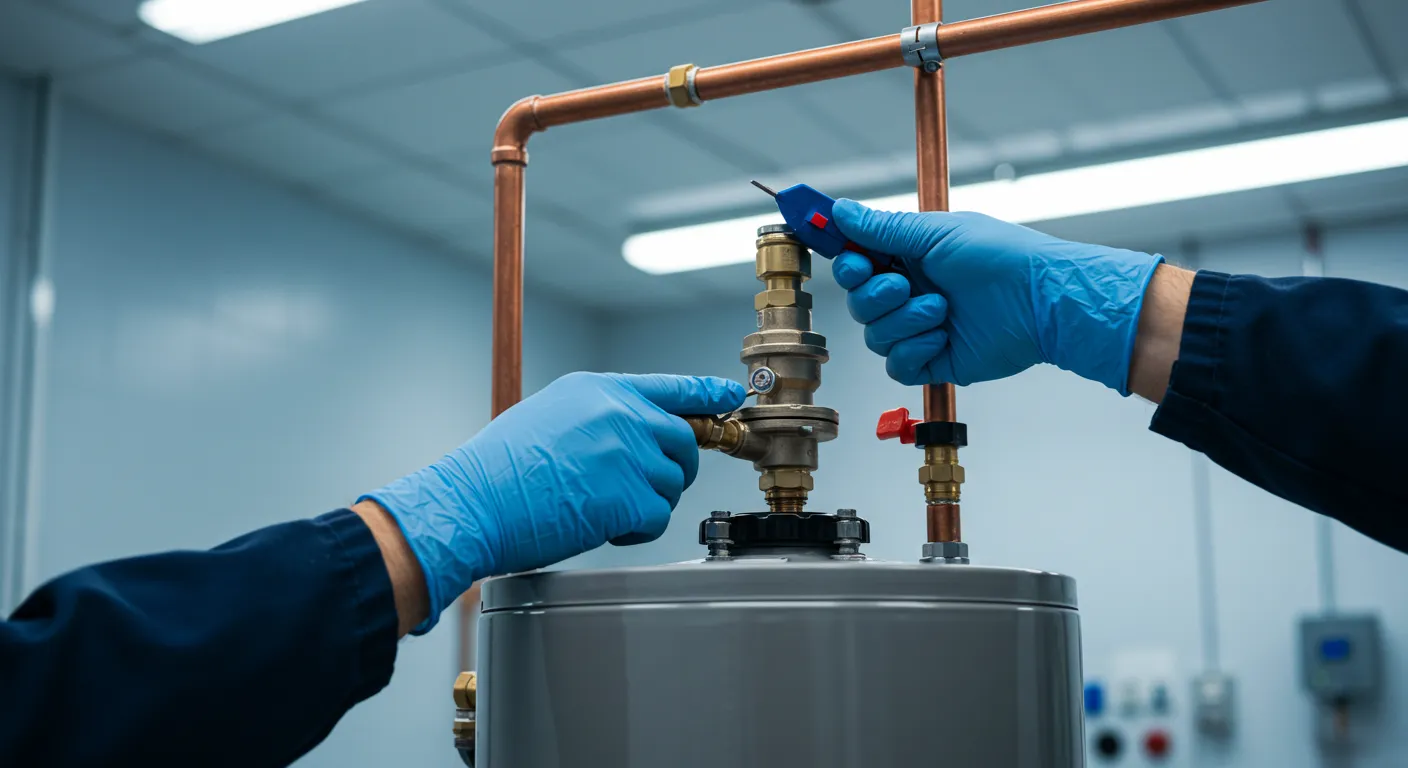Water Softener in Dupont, CO
Water Softener in Dupont, CO
Hard water is one of the most common but overlooked causes of plumbing and appliance failure in Colorado homes. A properly selected and maintained water softener in Dupont, CO prevents scale buildup, extends the life of water heaters and appliances, improves soap performance, and protects plumbing. This page explains installation, replacement, maintenance, system types, sizing, and what you should expect for water quality and long-term protection in Dupont homes.

Why water softening matters in Dupont, CO
Dupont’s water sources—whether municipal or private well—often contain elevated levels of calcium and magnesium. Those minerals cause scale that:
- Reduces water heater efficiency and shortens its lifespan
- Clogs pipes and restricts flow in fixtures
- Coats dishwasher and washing machine elements, causing premature failure
- Makes soap and detergent less effective, leaving residue on dishes, glass, and skin
In addition, Dupont’s seasonal temperature swings and cold winters increase the importance of indoor installation and freeze protection for system components. Homes with well water may also face higher iron content, which requires specific pre-treatment to protect standard ion-exchange resin.
Common water softener issues in Dupont, CO
Understanding common problems helps you decide whether to repair, replace, or maintain a system.
- Salt bridging or salt mushing in the brine tank (causes lack of regeneration)
- Persistent hardness at faucets (often from resin exhaustion, bypass valve issues, or control valve malfunction)
- Resin fouling from iron, manganese, or chlorine exposure
- Leaks at fittings or control valve seals
- Noisy or incomplete regeneration cycles
- Incorrect size leading to frequent regenerations or inadequate softening
If your home experiences recurring hardness, visible scale, or increased utility costs due to inefficient water heating, it’s time to evaluate the system.
Types of systems and how they perform in Dupont
Salt-based ion exchange (most common)
- Removes hardness ions (calcium and magnesium) by exchanging them for sodium or potassium.
- Reduces scale effectively, delivering near-zero hardness at taps.
- Requires periodic salt addition and brine tank maintenance.
- Resin typically lasts 10–15 years with proper pre-treatment and maintenance.
- Salt-free systems (template-assisted crystallization or TAC)
- Condition minerals to reduce scale formation without removing minerals.
- Good for homeowners wanting to avoid added sodium or those with moderate hardness.
- Less effective for very hard water or problem iron levels; does not reduce hardness measures.
Dual-tank or whole-house systems
- Recommended for continuous soft water with high demand or very hard water.
- Dual-tank systems allow one tank to regenerate while the other softens.
- Specialty pre-treatment (oxidizing filters, sediment, or iron filters)
- Critical for Dupont well water with iron or high sediment to prevent resin damage.
Sizing guidance — choose the right capacity
Proper sizing ensures efficient operation and reasonable regeneration frequency. Use this approach:
- Determine household hardness (gpg, grains per gallon) from a water test.
- Estimate daily household water use (average 75–100 gallons per person per day).
Calculate daily grain removal need:
Hardness (gpg) × gallons per day = grains removed per day.
- Select a softener with adequate grain capacity so regeneration frequency is manageable (common residential sizes: 24,000 to 64,000 grains). Aim for a regeneration every 3–7 days for best performance and salt efficiency.
- For example: a family of four at 80 gallons/person/day with 12 gpg hardness consumes 3840 grains/day. A 32,000-grain unit would regenerate about every 8 days; a 48,000-grain unit about every 12 days. Adjust for iron content and peak flow demands.
Installation requirements and considerations in Dupont
- Indoor installation in an unheated or insulated area when possible to prevent freeze risk.
- Level floor space near a cold water supply line, drain access for regeneration discharge, and an electrical outlet for timed/control valves.
- Bypass valve and shutoff valves for service without disruption to home water supply.
- Sediment prefilter if water contains particulate matter.
- Iron or oxidation pre-treatment if iron or manganese is present.
- Check local plumbing codes for drain requirements and backflow prevention.
- Properly sized inlet/outlet and plumbing fittings to maintain flow rates for showers and appliances.
Routine maintenance tasks
Regular maintenance keeps performance high and prevents small issues from becoming expensive repairs.
- Check salt level monthly; maintain appropriate salt type (evaporated or pellet salt recommended).
- Break up and remove salt bridges if they form.
- Clean brine tank every 1–3 years depending on salt quality and water conditions.
- Replace sediment prefilters every 3–6 months or as pressure drop indicates.
- Test water hardness at taps annually to detect resin decline or control valve issues.
- Service control valve and mechanical components every 3–5 years; replace resin when tests show declining capacity (commonly 10–15 years).
- Monitor for iron fouling; periodic chemical cleaning of resin may be necessary if iron is present.
Expected results for water quality and plumbing protection
After proper installation and tuning, expect:
- Significant reduction in scale and visible mineral deposits on fixtures and appliances
- Hardness levels reduced to near zero (salt-based) or scale formation significantly minimized (salt-free)
- Improved soap performance and softer-feeling laundry and skin
- Longer lifespan for water heaters, dishwashers, washing machines, and coffee makers
- Improved hot water heater efficiency and potentially lower energy costs
- Fewer clogs and reduced pipe corrosion from mineral buildup
Replacement vs repair — when to upgrade
Repair is often appropriate for recent systems with isolated valve or electrical problems, or when resin is still functional. Consider replacement when:
- Resin is exhausted or irreversibly fouled by iron or chlorine
- The control valve is obsolete or repairs are frequent and costly
- The system is undersized for current household needs
- You want to upgrade to a higher-efficiency or twin-tank system for continuous soft water
Softer Water, Happier Home with Water Softener Services
Transform your home’s water quality with Water Softener in Dupont, CO solutions by Limelight Services. Our systems reduce mineral buildup, improve appliance longevity, and provide cleaner, softer water. We offer full installation and maintenance support. Explore our Blog for water treatment insights, check Financing options, and Contact Us today. Limelight Services helps Dupont homeowners enjoy better water quality and lasting system efficiency—all with expert care you can depend on.

















